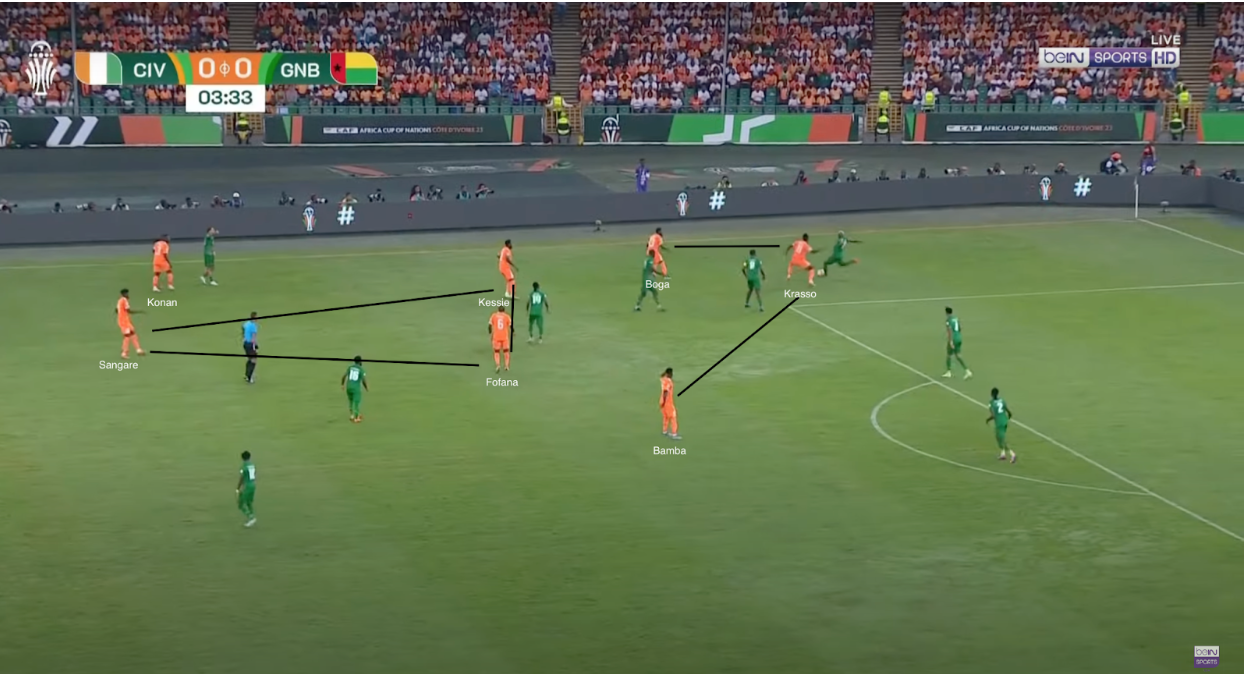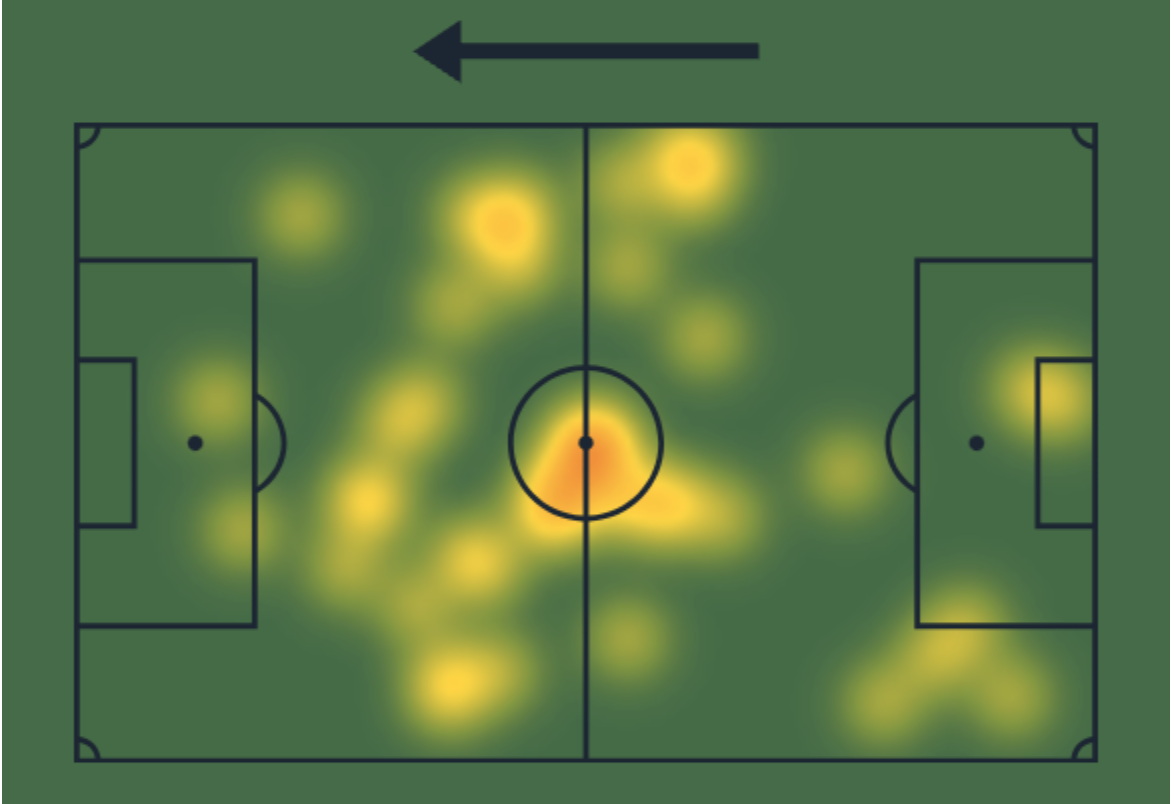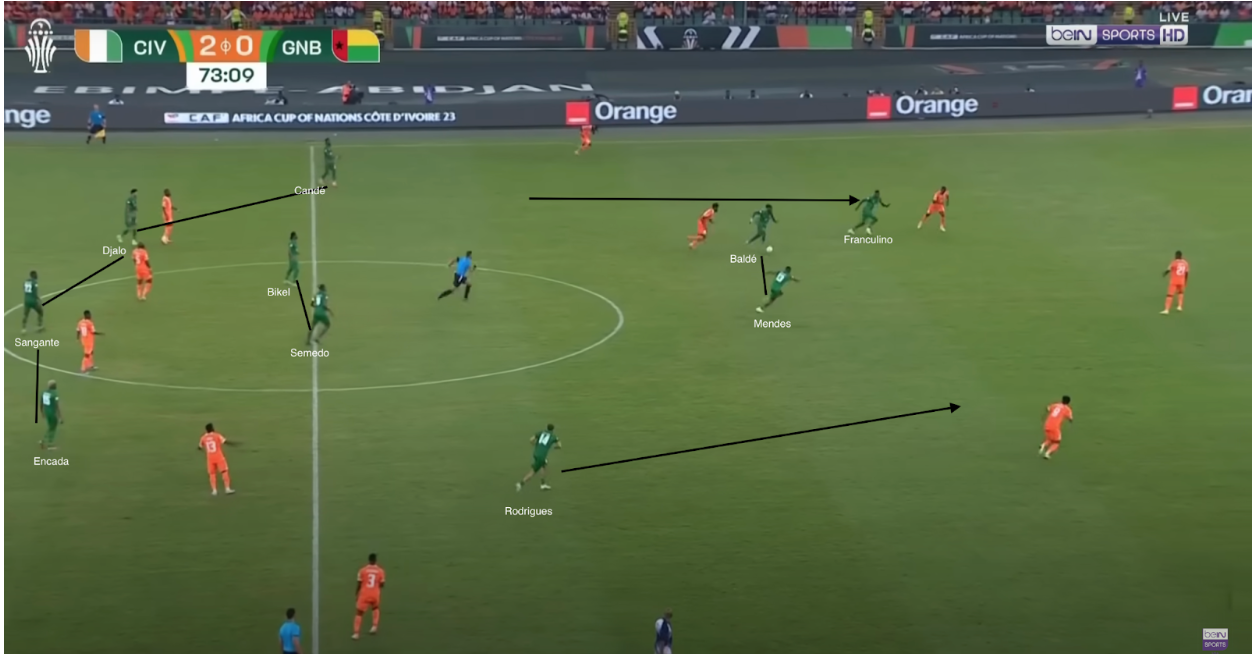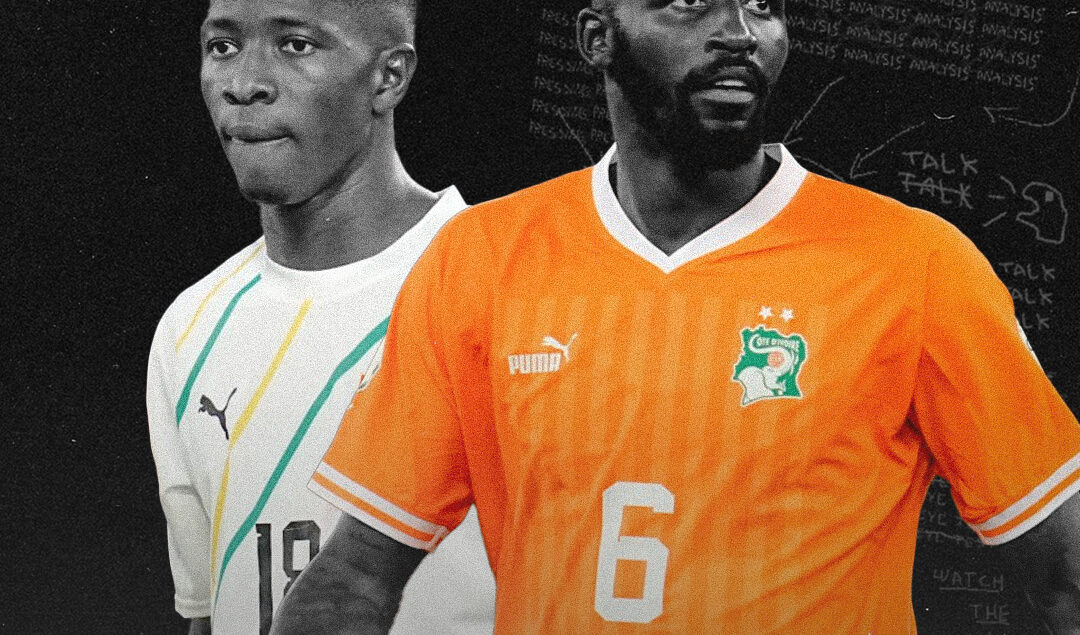Tactical Analysis: Côte d’Ivoire 2, Guinea-Bissau 0
Although most of the pre-game attention was focused on Al Ahli midfielder Franck Kessié and his resurgence to the world stage, Seko Fofana stole the shine in front of an enthusiastic home crowd yesterday. The Al-Nassr playmaker opened with a stunning curler of a goal that weaved its way past the Guinea-Bissau keeper. From there, Fofana brought absolute havoc on a still-dazed defense, persistently penetrating the back line with long balls upon long balls.
Fofana isn’t the most recognizable midfielder on his team, let alone the entire tournament, but he played like a genuine superstar — someone who could star on a Premier League-contending squad. His confidence with the ball at either of his feet, his vision across the field, his leadership to tie together his young squad. All are vital for Côte d’Ivoire.
Along with stylish players like Jonathan Bamba, Jeremie Boga, and Jean-Phillippe Krasso, Fofana and his squad are must-watch television when things click for them. In their 2-0 win, it seemed everything — well, most things — were working ahead of a blockbuster match with Nigeria.
Seko Season
The Côte d’Ivoire midfield three proved to be all they were hyped up to be. Ibrahim Sangaré of Nottingham Forest played the number six position, while Kessie and Fofana played as complete midfielders, making important impacts on both sides of the field.
The midfield three was a key part of how they held a whopping 61% of the game’s possession. Any one of the three midfielders would drop deep in between the center-back pairing of Evan N’Dicka (Roma) and Ousmane Diomandé (Sporting), allowing the wingbacks to push up high and wide, and cementing a stronghold in the opponents’ half.

The moments before Côte d’Ivoire’s opener against Guinea Bissau. Here, we see the defensive structure Côte d’Ivoire relied on, with an offensive-minded midfield triangle, a front three, and aggressive wingbacks. Through this structure, they won the ball after losing it often, held possession, and created high-quality chances.
Fofana’s role himself was a mix between the deep-lying playmaker role he filled at Lens and his defensive midfield role at Al-Nassr. Manager Jean-Louis Gasset gave Fofana free rein to roam the field. The result was a renewed burst of creativity and more lethality on the offensive end. Fofana is a player to watch out for ahead of the Ivory Coast’s blockbuster clash with Nigeria. He’s already making his case as one of the best midfielders in the tournament and proving his status as a top-tier midfielder in world football.
Neutralizing Mama Baldé
The main offensive threat in Guinea-Bissau’s lineup is Mama Baldé. Baldé is a prominent player for Lyon, currently mired in a relegation battle in Ligue 1. He’s had a 15-game goal drought for club and is struggling with poor form. Despite that, Côte d’Ivoire took him very seriously.
Baldé was constantly marked at all times, either by Diomandé or N’Dicka. He had little to no impact on the game, only having two touches in the box and firing one shot into the hands of keeper Yahia Fofana. Although Baldé had some poor moments — a failed bicycle kick and an injury in the 85th minute among them — his attacking teammates didn’t provide any help.

A Sofascore heat map showing roughly Baldé’s position against the Ivory Coast. Despite being the most advanced player on his team, Baldé spent most of his time far away from the box. Wingers Carlos Mané and Mauro Rodrigues found themselves similarly stymied by their markers. Between the two, they completed one of four dribbles and won three of 11 duels. The mix of Guinea-Bissau’s wingers being unable to produce and the lack of time they spent in possession meant that not only could Baldé not produce, but they posed no threat of attack.
Something needs to change for Guinea-Bissau to get their lead striker back in action. Although Baldé is questionable for Guinea-Bissau’s must-win match against Equatorial Guinea, it doesn’t mean a player like Franculino or Carlos Mendes could step up to play the #9 role. It’s not hard to see Guinea-Bissau manager Baciro Cande throwing more players upfield and playing with a more attack-minded playstyle.
Not All Bad for Guinea-Bissau
Although Guinea-Bissau looked entirely out of their element against the Ivory Coast in the second half, their switch to a 4-4-2 in the second half helped them get back in the game. Guinea-Bissau nearly quadrupled their xG total from the first half in the second half, while nearly scoring through a Franculino strike in the 75th.
By subbing off midfielder Moreto Cassamá for attacker Carlos Mendes, Guinea-Bissau effectively turned their conservative 4-4-3 shape into a wide and attacking 4-4-2.

Guinea-Bissau’s 4-4-2 shape depicted as Mama Baldé dribbles the ball into the Côte d’Ivoire defense. Guinea-Bissau’s change helped them get back in the game. The once three-man midfield turned into a double pivot with Alfa Semedo and Janio Bikel. Rodrigues and Franculino became wide midfielders. Baldé and Mendes became a duo up top, with Baldé the poacher and Mendes the supporting striker.
This change helped Guinea-Bissau get their foot in the game. They looked better in possession, completing several more passes in their opponents’ half, and got closer than ever to Côte d’Ivoire’s box — and goal — than ever. They also saw improvements off the ball too. Despite conceding to Krasso in the second half, they largely frustrated the Cote d’Ivoire offense and made the game a war of attrition.
Post-game comments from Abidjan
After a comfortable 2-0 win, Gasset spoke to media at the stadium about the win. “We are relieved to have won this very stressful match. It’s the start of the tournament and it was crucial to begin with a victory at home. We struggle to manage spells when we don’t have the ball and need to be more clinical up front,” he admitted. “We know Nigeria’s strengths – their attacking line-up is impressive and their striker [Victor Osimhen] is the best in Africa. We will have to improve but having got the opening match pressure off, I’m sure my players will step up.”
The African Cup of Nations starts in just 16 days! Here at BTL, we’ve got you covered with in-depth analysis of Africa’s biggest tournament.
Introducing: The Ultimate 2023 AFCON Preview, by @Cosimo_diMedici.
Here’s what you need to know about Group A: https://t.co/N3MuaupAr0 pic.twitter.com/3ZihhMK4EY
— Breaking The Lines (@BTLvid) December 28, 2023
Seko Fofana credited the home crowd as a key reason for Côte d’Ivoire’s success. “We have been waiting for this moment for a very long time. We didn’t fall into any trap, we won the game, and even if not everything was perfect we are very pleased. We will keep working humbly and try to correct the little errors we made, but I thought we played well. We are very pleased to have given everyone who came here something to shout about, as well as everyone who watched us on television. “From what I could see the stadium looked full. We had great support.”
Baciro Candé expressed optimism after an early loss, looking ahead to the next two games against Equatorial Guinea and Nigeria. “We have to make up for our mistake by working towards the next games. There are still six points to play for and I believe anything is possible. We tried to come back. We played our game. We had a good chance with Mama Balde but we didn’t make it happen… We created chances but the goals didn’t materialize.”
Everything Else
Man Of The Match: Seko Fofana
Fofana has proven to be irreplaceable for Côte d’Ivoire after his lengthy stint away from the national team. In his last three games, he has scored three goals and added an assist. Not only that, but he’s an excellent distributor of the ball and a solid defender.
From Namibia beating Tunisia to Cape Verde beating Ghana, we’ve seen plenty of major upsets across the first round of AFCON.
Angola have not won an AFCON match since 2012, but they nevertheless escaped with a 1-1 draw vs. Algeria courtesy of a penalty goal from Mabululu. pic.twitter.com/o7xwIra0to
— Breaking The Lines (@BTLvid) January 16, 2024
(Worst) Man Of The Match: Opa Sangante
The Dunkerque center-back found himself outplayed at every turn. He completed just two of nine long balls, lost nine of 11 duels, and was dribbled past four (!!) different times. Not to mention, he was the player whose poor pass landed right to Kessié’s feet in the third minute, eventually leading to the first goal of the match.
Next Up
With an opening day win, Côte d’Ivoire is firmly in the driver’s seat of Group A. With at least a draw against Nigeria and a win against Equatorial Guinea, they are shoo-ins to finish first. Teams have scraped in the knockout stage with only three points, so Cote d’Ivoire is in a very strong position.
Guinea-Bissau’s game against Equatorial Guinea is their best opportunity to take points in the group. A win could put them in a good position to advance to the knockout round.
By: Deolu Akingbade / @AkingbadeDeolu
Featured Image: @GabFoligno / DeFodi Images
